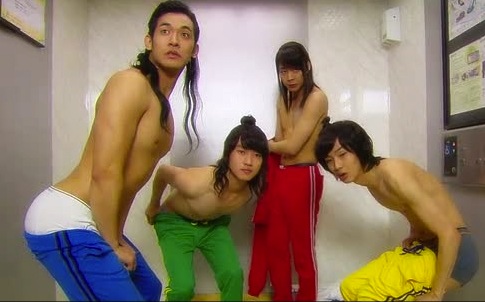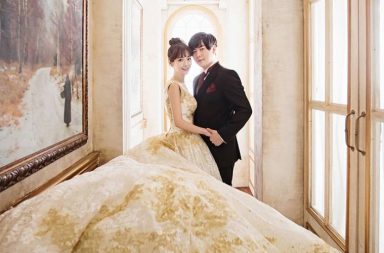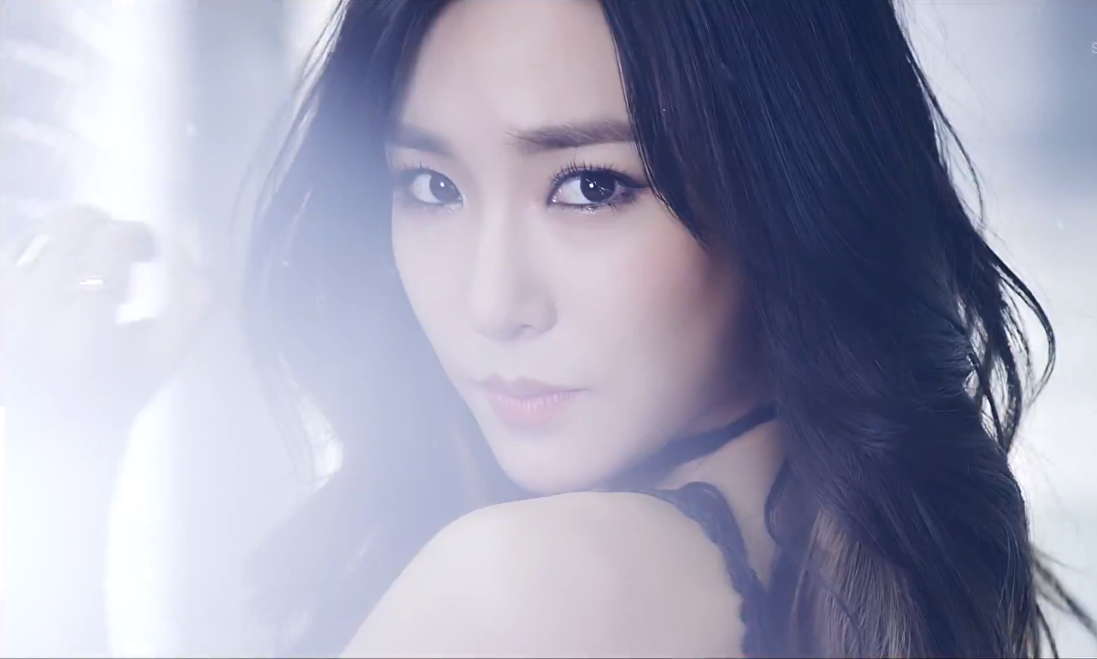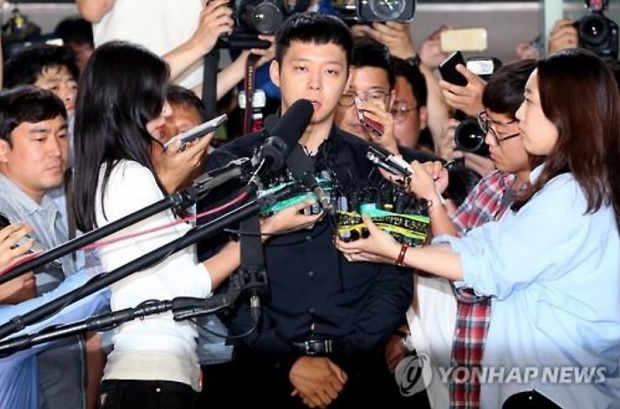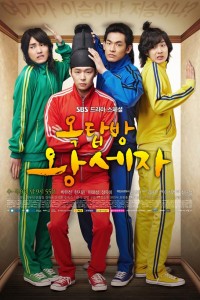 I should preface this post by saying that I’m by no means a regular drama watcher, and that my taste in dramas is pretty laughable. Case in point: the last drama I watched in full was Paradise Ranch. And I enjoyed it.
I should preface this post by saying that I’m by no means a regular drama watcher, and that my taste in dramas is pretty laughable. Case in point: the last drama I watched in full was Paradise Ranch. And I enjoyed it.
So when a quality drama like Rooftop Prince comes along, it pretty much goes without saying that I’ll be impressed. The setup of the drama guarantees some good laughs along the way — a Joseon-era prince is transported to Seoul 2012, where shenanigans are bound to occur — but the question is: will the funny last?
Fortunately, the drama isn’t completely composed of slapstick humor and hilarious scenes of the Joseon Power Rangers trying to figure out how a toilet works. As is required of nearly every K-drama, the relationships between the characters are pretty headache-inducing to untangle, especially with the time shifts within the plot. I would try to explain all of it here, but for the sake of preventing my brain turning into spaghetti, I’ll leave that to the drama itself.
Rooftop Prince has arguably been billed as the designated comedy drama of the season, and for good reason. The setup of the drama is inherently hilarious, yes, but the comedy is all the more emphasized by the acting of the Dynamic Joseon Foursome. The comedy of these four characters lies inherently in the fact that they are complete, straight-faced, serious dignitaries in the Joseon world, and their comedic actions in 21st century Seoul are naturally catalyzed simply by the fact that they’re big, fat, sweatsuit-clad fish out of the water. In this way, one might be tempted to say that playing any of these four roles doesn’t require much comedic sense, as the acting basically plays itself out. But I tend to think of this assumption as evidence in support of the foursome’s acting skills; if their interactions with 21st century Seoul are as genuine and as naturally comedic as we perceive them to be, then that probably means that the actors are doing their job.
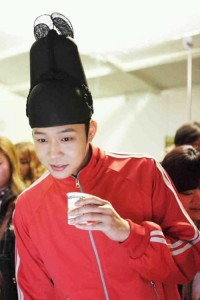 I didn’t watch Yoochun in his two previous dramas, but I’m glad that I started off by watching his performance in Rooftop Prince. It’s clear that Yoochun has developed considerably as an actor, and he’s done a great job in making Lee Gak a multifaceted but nonetheless consistent character. Some might say that it’s unfair of viewers to be constantly hypercritical of K-pop idols in dramas simply because they are K-pop idols, but I think that just comes with the burden of being a K-pop idol-turned-actor. It can be distracting to see a K-pop idol in a drama simply because they’re so established as an idol personality, so that the idea of them being absorbed onto an onscreen character becomes especially difficult to accept. Add to that the extra stigma of K-pop idols in dramas, and it doesn’t come as a surprise that K-pop idol actors are easier targets to criticize simply because they stick out so much.
I didn’t watch Yoochun in his two previous dramas, but I’m glad that I started off by watching his performance in Rooftop Prince. It’s clear that Yoochun has developed considerably as an actor, and he’s done a great job in making Lee Gak a multifaceted but nonetheless consistent character. Some might say that it’s unfair of viewers to be constantly hypercritical of K-pop idols in dramas simply because they are K-pop idols, but I think that just comes with the burden of being a K-pop idol-turned-actor. It can be distracting to see a K-pop idol in a drama simply because they’re so established as an idol personality, so that the idea of them being absorbed onto an onscreen character becomes especially difficult to accept. Add to that the extra stigma of K-pop idols in dramas, and it doesn’t come as a surprise that K-pop idol actors are easier targets to criticize simply because they stick out so much.
But Yoochun has done a great job of melding himself into the drama and making the audience ignore the fact that he’s actually a K-pop idol. I can’t exactly put my finger on why this is the case, or why Yoochun does a better job blending in with his drama than other K-pop idol actors, but it certainly helps to make Rooftop Prince a far more comfortable viewing experience.
It’s only been the first four episodes of a drama that’s set to run for another 16, so there’s not much room yet for critical commentary or speculation. But in many ways, the first few episodes of a comedy are probably the easiest — you can sell the story with tons and tons of jokes without things getting stale. But will that continue to fly as the drama progresses? Probably not.
The setup of the plot itself is so complex that 20 episodes will probably be necessary just to untangle all the messes, but the danger in this is that the momentum of the drama runs the risk of dragging. The fact that a good chunk of Rooftop Prince involves family-oriented business drama almost guarantees that there are going to be points where the plot is going to drag. This whole thing with family businesses fighting with each other happens in almost every other drama, and while it undoubtedly adds complexity to the plot, it’s always a drag to get through. Much like eating your vegetables.
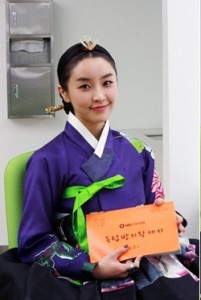 In addition, there are two characters that we’re practically destined to hate from the get-go — Se-na, who holds a vendetta against her “sister” and drama heroine Park-ha, both in the 21st century world and in the Joseon world; and Tae-moo, who kills his cousin, Tae-yong, and almost kills his Joseon-era doppelganger, Lee Gak. Both of these folks prove themselves to be sneaky and conniving right from the get-go, most oftentimes in ways that work against our protagonists, so we’re basically conditioned to hate them from the start. And hating on characters is exhausting.
In addition, there are two characters that we’re practically destined to hate from the get-go — Se-na, who holds a vendetta against her “sister” and drama heroine Park-ha, both in the 21st century world and in the Joseon world; and Tae-moo, who kills his cousin, Tae-yong, and almost kills his Joseon-era doppelganger, Lee Gak. Both of these folks prove themselves to be sneaky and conniving right from the get-go, most oftentimes in ways that work against our protagonists, so we’re basically conditioned to hate them from the start. And hating on characters is exhausting.
But like I said before, my taste in dramas is anything but refined, and I probably won’t be too bothered should the plot turn stale or start dragging. What would really kill me, though, is if the comedy started to wane. I’m a woman of simple tastes, y’see, but even I would start rolling my eyes if the same jokes about Lee Gak’s obsession with yogurt continued to recur ten episodes down the line. A lot of the comedy is based in the Joseon foursome’s sheer buffoonery in 21st century Seoul, but that joke will inevitably die down as the drama progresses. Nevertheless, it’s clear through the first few episodes that the writers have a good overal handle on comedy, so hopefully this comedic sense will transfer over to later plot points in which the focus isn’t necessarily on the Joseon crew’s inability to adapt to modern Seoul life.
For the time being, however, I think the thing that keeps this drama balanced is the way that the comedy is countered. Anything sad automatically becomes even sadder once’s it’s juxtaposed against something that was once funny and lighthearted, and Rooftop Prince uses this device all the time, whether it’s through the image of the radish doll lying on the ground in the rain, or the image of three Joseon dudes half dressed in animal suits while Park-ha mourns over the news of her being evicted from her newly-opened shop. In this way, comedies have the potential to be even sadder than some straightforward melodramas, simply because of how the comedy can be transplanted into the occasional sad moments of the drama.
Obviously, I’m planning on keeping up with Rooftop Prince, if only so I have a more respectable answer than Paradise Ranch whenever someone asks what my last-watched drama was. And because — hey, who could get enough of this?
